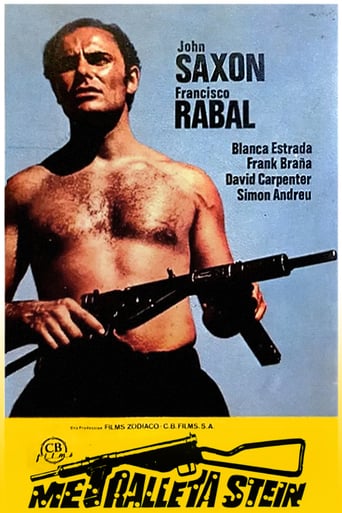django-1
What a pleasant surprise this film, my copy titled BLIND VENDETTA, is. I was expecting yet another generic 70s euro-police film, which would have been fine, but what I instead got was an interesting character study of a police commissioner (Francisco Rabal, dubbed by a voice familiar to 70s euro-crime fans) and his nemesis, a bank robber (John Saxon, doing his own voice, as magnetic as ever!). We get to experience the daily life of both characters in a kind of parallel fashion, and of course this being a European film, they are depicted as similar people each doing his "job" and following a code. We get to know the Commissioner and criminal Mariano Beltran quite well separately, and with each crime and with the ways in which they taunt each other before and after the crimes, they are gradually brought together in the course of the film. The plot does not develop in a standard way, with an interesting sidetrip into France with Saxon and a teenage girl (who is explained as being the daughter of a friend), and with a showdown that's in an unexpected place. The eventual duel between Rabal and Saxon is handled well and ends in a surprising way, the kind of fatalistic/existential ending that is more common to European action films and was only seen in American films briefly in the 1970s. Director-writer Jose Antonio de la Loma has more credits as a writer than as a director (some of his 80s output (with some interesting casting!) were staples of the early video-tape-rental days), but he clearly thinks for himself and never lapses into by-the-book crime film clichés. I think that the fans of 70s Eurocrime films will find this an interesting film--it doesn't have as many gunfights and car chases as many Italian films of the day, but it's quite thoughtful and both Saxon and Rabal create memorable characters. I'll have to seek out more of de la Loma's work.

